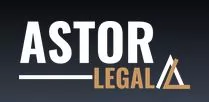- in United States
- with readers working within the Media & Information and Metals & Mining industries
- within Law Department Performance, Food, Drugs, Healthcare, Life Sciences and Real Estate and Construction topic(s)
Supreme Court bail applications in New South Wales can only be made after a person has been refused bail in the Local Court.
Bail is defined as a person being granted conditional liberty before their criminal charges have been finalised. Bail can be granted by either police or by a court.
Supreme Court Powers
The NSW Supreme Court has the power to grant bail after a person has been bail refused by the Parramatta bail court, central bail court or any other Local Court.
The power for the Supreme Court to grant bail is set out in section 66 of the Bail Act 2013.
If a person is already on bail and wants to vary their bail conditions, then they can file a variation application. After hearing the application, the court can refuse the application, or vary the bail decision. There is also a possibility that the variation may lead to tougher bail conditions.
Repeat Bail Applications
A person is generally only able to make one application to the Supreme Court for bail. The Supreme Court cannot hear repeat bail applications except in very particular circumstances. These include:
- The applicant was not legally represented when the prior bail application was made and is now legal represented;
- There is new material information that was not presented to the court on the previous application;
- There has been a change in circumstances relevant to the grant of bail have changed since the previous application.
However, if the further bail application in NSW is found to be 'frivolous or vexatious', then the Supreme Court can refuse to hear it despite one or more of the above grounds being made out.
The Supreme Court may also refuse to hear an application to vary bail conditions if the application could have been dealt with by a magistrate, authorised justice or the District Court.
How to Make a Supreme Court Bail Application
To make a Supreme Court bail application, the following steps must be followed:
- Prepare and file a written Supreme Court bail form with the Supreme Court Registry;
- The Court will provide a date for callover and the release application itself;
- All documents must be filed by the callover date and confirmation by the Crown and applicant that it can proceed;
- The case will then be listed for Supreme Court bail hearing where the application will be heard.
Supreme Court release applications take longer to be listed than Local Court or District Court applications. Once the application has been filed it will be placed into the Supreme Court bail list.
If there is a proposed surety, then this person should be in attendance at court. There should also be affidavit evidence from the surety, as well as any person who the applicant will live with and any person who is offering the applicant employment.
Some applications will be based on the applicant entering a residential rehabilitation program. In this situation, there will need to be evidence from the rehabilitation centre that there is a bed available, the conditions in the facility, the length and details of the program and that any breaches will be reported to police and the court.
These documents will need to be provided to the Crown by the callover date so they can advise whether they wish to cross-examine any of the witnesses.
Generally, a Crown prosecutor will appear and oppose bail. As such, you will need an experienced bail application lawyer. You can contact Astor Legal on (02) 7804 2823 or email us at info@astorlegal.com.au. The Supreme Court bail cost will depend on the complexity of your case.
'Show Cause' Bail Applications in the Supreme Court (NSW)
Show cause bail offences are set out under Section 16B of the Bail Act 2013. These offences include:
- offences that are punishable by life imprisonment;
- certain firearm offences;
- serious drug offences;
- serious indictable offences committed while the applicant was already on bail.
Generally, Supreme Court bail applications involve 'show cause' offences.
A release application must be refused for a 'show cause' offence unless the applicant can show why their detention is not justified. This means that it is for the accused to provide reasons why they should be granted bail. If they do not get over this hurdle, then bail will be refused without the court needing to consider whether any bail concerns exist.
The Court is not bound by the rules of evidence when hearing the application. All of the information that the court considers credible or trustworthy in the circumstances can be taken into account.
Unacceptable Risk
If cause has been shown why a person's detention is not justified, the court will then move on to applying the 'unacceptable risk' test.
The court will consider what bail concerns exist and then whether these concerns can be mitigated by appropriate bail conditions. If the court finds the concerns cannot be mitigated, then they will find that an unacceptable risk exists and bail must be refused.
Conversely, if the bail concerns can be mitigated, then bail will be granted.
Some of the factors the court will take into account in assessing with an unacceptable risk exists are:
- delay in the case being finalised, being the amount of time the accused will remain in custody if refused bail;
- the strength of the prosecution case;
- community and family ties; and
- any reason that the accused needs to be free, such as medical treatment or preparing his or her legal defence.
A bail concern is defined in Section 17(2) of the Bail Act as a concern that the accused person if released from custody, will:
- fail to appear at any proceedings for the offence; or
- commit a serious offence; or
- endanger the safety of victims, individuals or the community; or
- interfere with witnesses or evidence.
Lawyers for Supreme Court bail applications will usually tender a number of documents to address bail concerns. These documents can be affidavits, character references and surety forms. If flight is raised as a bail concern, there will also need to be evidence that a sufficient amount of security can be raised to mitigate that bail concern.
Show Cause and Unacceptable Risk
If the 'show cause' test is satisfied, the 'unacceptable risk' test will still need to be overcome. While the 'unacceptable risk' test is separate to the show cause test, the factors used for both are usually the same. For example, that bail concerns can be mitigated could be a factor that contributes to the 'show cause' test being met.
Factors that would tend to favour bail being refused include the applicant having a history of violence, that there is a strong prosecution case and there is likely to be a custodial sentence imposed if found guilty.
Can I Apply for Bail While My Case is Pending Appeal?
You can apply for bail while your case is pending an appeal. This includes both an appeal against sentence or conviction. The appeal having reasonable prospects of success will be a key consideration in this bail application. However, it is not determinative. Rather, the show cause and unacceptable risk factors will still be applied.
Court of Criminal Appeal Bail Application
What if a Supreme Court Bail Application is Refused?
If a Supreme Court bail application is refused, then an appeal can be lodged with the Court of Criminal Appeal (NSWCCA).
Pursuant to section 67 of the Bail Act, the NSWCCA may hear a bail application in ceratin circumstances, such as:
- An appeal to the High Court is pending;
- A new trial has been ordered which has not yet commenced;
- The Court has made an order to continue committal proceedings;
- The Court has directed a stay of execution of a conviction;
- A bail decision has been made by the Land and Environment Court, Industrial Court, or the Supreme Court.
Can I Apply for Bail if I Have a Pending CCA Conviction Appeal?
A person can apply for bail if they have a pending CCA Conviction Appeal, however the test us much more rigid. A court cannot grant bail or dispense with bail if an appeal is pending in the Court of Criminal Appeal against conviction or sentence, unless special or exceptional circumstances exist.
This means that even for a "show cause" offence, criminal lawyers will have to show that special or exceptional circumstances exist for the bail application to be granted.
Can Prospects of Success Be a Special or Exceptional Circumstance?
The case of Seong Won Lee and Do Young Lee v Regina [2012] NSWSC 1168, two accused were convicted of firearms offences and drug supply.
An appeal was allowed and the matter remitted for re-trial. The appeal court found that there had been a miscarriage of justice due to the illegal release and possession of a compulsory examination to the DPP and its use in trial.
When determining whether bail should be granted, Justice Hall held that a single factor could be sufficient to establish a special or exceptional circumstance. However, it was made clear that if prospects of success at trial were relied on, the applicant would have to establish more than a mere arguable ground of appeal.
For a factor to be found to be a special or exceptional circumstance, it must be established that the ground of appeal is certain to succeed and one which can be seen without detailed argument to be certain to succeed.
Can an 'unreasonable verdict' amount to a 'special or exceptional' circumstance?
The case of DPP v SKA [2009] NSWCA 51, involved an accused who was convicted of aggravated sexual intercourse without consent and aggravated indecent assault. After sentencing the accused to a term of imprisonment that was to commence immediately, His Honour ordered a stay on the execution of the sentence and granted bail in the interim.
The accused lodged an appeal against the conviction and sentence. The Crown also appealed against the sentence and sought a review of the decision to grant bail.
The accused submitted that the verdicts made by the jury were unreasonable and that on appeal, the defendant would enjoy an extraordinarily high prospect of success. However, Justice Buddin found that the Crown has established that there were some matters which pointed to the reliability of the complainant.
Because of this, there was only an arguable case in relation to the conviction appeal. That by itself was not sufficient to satisfy the "special or exceptional circumstances". As such, bail was revoked.


